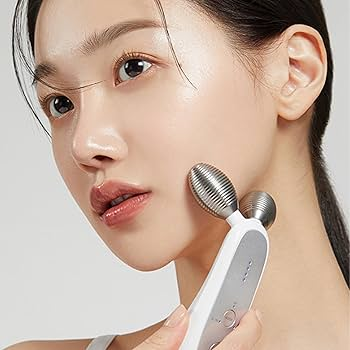Debunking Common Skincare Myths: The Reality Behind Popular Practices
Let's face it - the world of skincare can be confusing and overwhelming. With numerous myths floating around, it's hard to know what to believe. But, worry not! We're here to set the record straight, once and for all. In this article, we'll debunk the top ten skincare myths you've likely heard or come across, with expert quotes and scientific backing.
1. Not Washing Your Face Causes Acne
The myth that avoiding face washing will cause acne is simply not true. Acne occurs due to complex interactions between hormones, the immune system, and bacteria. Dermatologist Dr. Leslie Baumann states, "The formation of acne is more complicated than just a dirty face."
However, that doesn't mean you should entirely dismiss personal hygiene! Washing your face can help remove excess oil, dirt, and makeup, which can contribute to breakouts.
2. Natural, Clean Skincare is Naturally Better
The notion that natural, clean skincare is always better than synthetic ingredients is another persistent myth. The truth is, what matters most is the effectiveness and safety of each specific ingredient, whether natural or synthetic.
As The Journal of Clinical and Aesthetic Dermatology reports, "Natural does not always signify better or less irritating. Additionally, clean does not necessarily imply safer."
3. You Need to Exfoliate Your Face Every Single Day
While exfoliating regularly is crucial to maintaining a healthy complexion, over-exfoliation can lead to skin irritation and inflammation. Most dermatologists advise exfoliating 2-3 times per week, depending on your skin type.
Dr. Dendy Engelman, a New York City-based dermatologist, says, "There is such a thing as too much exfoliation—more is not always better. Too much mechanical-force exfoliation can be abrasive, stripping away the skin's natural protective barrier."
4. Eye Creams Don't Do Anything
Many people question the efficacy of eye creams, but the truth is that eye creams can provide targeted treatment for specific concerns. As renowned dermatologist Dr. Paul Cohen explains, "Eye creams are formulated differently than facial moisturizers because the skin around the eye is thinner, and more delicate."
It is important, however, to choose an appropriate eye cream with active ingredients that address your specific needs, such as retinol for fine lines or caffeine for puffiness.
5. You Don't Need Retinol Until Your Thirties, Forties, or Fifties
Retinol, a form of Vitamin A, is widely regarded as the gold standard for anti-aging due to its powerful collagen-boosting properties. While many people wait until their thirties or later to start incorporating retinol into their skincare routine, the truth is that you can begin using retinol in your twenties to help prevent early signs of aging.
Dr. Elizabeth Tanzi, a dermatologist and director of Capital Laser & Skin Care, states, "If the skin can tolerate it, start using a retinol in your mid-to-late twenties as a proactive anti-aging measure."
6. You Don’t Need to Wear Sunscreen in the Fall or Winter
Sunscreen is not just for summertime! Ultraviolet (UV) rays can damage your skin even on cloudy days or during colder months. The American Academy of Dermatology recommends wearing sunscreen with an SPF of 30 or higher every day, regardless of the season.
Dr. David Bank, a New York-based dermatologist, explains why: "UV rays are always present and can penetrate through clouds and even glass windows, so wearing sunscreen year-round is a must."
7. You will age faster if you wear makeup regularly
The myth that wearing makeup will speed up the aging process is simply not true. While it's important to take off your makeup every night and use products with SPF protection, there is no scientific evidence to suggest that regular makeup usage accelerates the signs of aging.
In fact, studies have found that people who wear makeup may actually age more slowly, due to the protective barrier that makeup provides from environmental stressors such as UV rays and pollution. Of course, it is still important to use high-quality, noncomedogenic products that are designed for your skin type in order to ensure your skin stays healthy and youthful. Overall, wearing makeup regularly won't make you age faster—it is simply a matter of using the right makeup for your skin.
8. If it burns, it means it’s working
The idea that if a skincare product burns, it means it's working, is completely false. In fact, burning or stinging sensations are usually signs of irritation or inflammation and could indicate that the skin is being damaged rather than benefiting from the product. If you experience any kind of discomfort after applying a skincare product, cease use immediately and consult a dermatologist. Some chemical exfoliants, such as glycolic or salicylic acid, can cause some stinging upon application but this should subside shortly thereafter. If the stinging persists or intensifies, discontinue use of the product. Remember, skincare products that make your skin feel uncomfortable are not necessarily good for your skin. The best skincare products should leave your skin feeling nourished and hydrated, not itchy or irritated.
9. Hyaluronic acid is the best hydrating ingredient on the market
While hyaluronic acid certainly has impressive water-binding properties, it is only one of many ingredients that can effectively hydrate the skin. Other ingredients such as ceramides, glycerin, and urea have been found to be just as effective at hydrating the skin, and in some cases even more effective than hyaluronic acid. Additionally, many skincare products that contain hyaluronic acid also contain other ingredients such as alcohols or fragrances that can cause irritation or dryness, thus negating any potential benefits of the hyaluronic acid. Therefore, it is important to read the labels of any skincare products you are considering and choose one that contains a combination of hydrating ingredients that best suits your skin type.
10. Steaming your face will open your pores
Steaming your face is a popular skincare practice that many people believe can open their pores and remove dirt and impurities from the skin. While steaming your face may feel nice and relaxing, it won't actually do much to open your pores. This is because the size of our pores is determined by genetics, not by how much dirt or impurities are in them. The steam may cause some of the buildup on your skin to become more visible, but it won't actually make your pores open up or create a deeper cleaning effect. If you do choose to steam your face, be sure to keep the temperature and duration of the steam at a minimum so you don’t risk damaging your skin. Additionally, always remember to apply a moisturizer or serum after steaming to keep your skin protected. Overall, while steaming can be a relaxing way to end a stressful day, it won’t do much for the size of your pores.

















